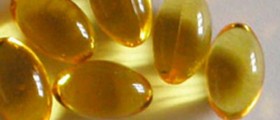
Breastfed children have consistently been shown to score a few IQ points higher than their formula-fed peers, and this has puzzled scientists who have sought to come up with an explanation. Fatty acids could have been the answer... and that is why the two main fatty acids, docosahexaenoic acid (DHA) and arachidonic acid (AA), were added to baby formula. But, while scientists still think that fatty acids are beneficial to babies, 12 previous studies that compared babies fed on formula fortified with fatty acids to those on a formula with no fatty acids found no differences in their mental development, linguistic abilities and motor skills.
Don't let this review of studies be a reason to buy a formula without fatty acids for your baby, as it's definitely beneficial in one way or another. Eyesight and the baby's immune system could be better off with fatty acids, for example. But as far as brain development goes, you don't have to worry either way. The study team said: "There also remains the possibility that [fatty acids] could impact later cognitive development or more specific aspects of cognitive development such as attention, information processing, mood, or behavior." In other words, the theory that fatty acids make children smarter at a later age can't even be discounted yet, either.

















Your thoughts on this
Loading...